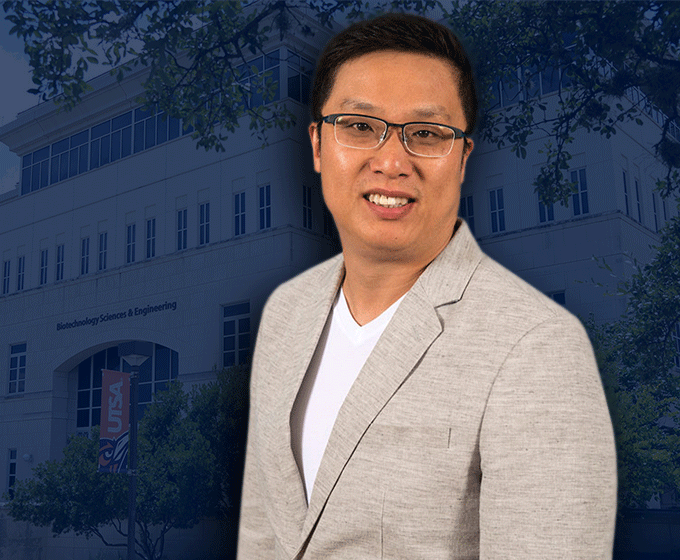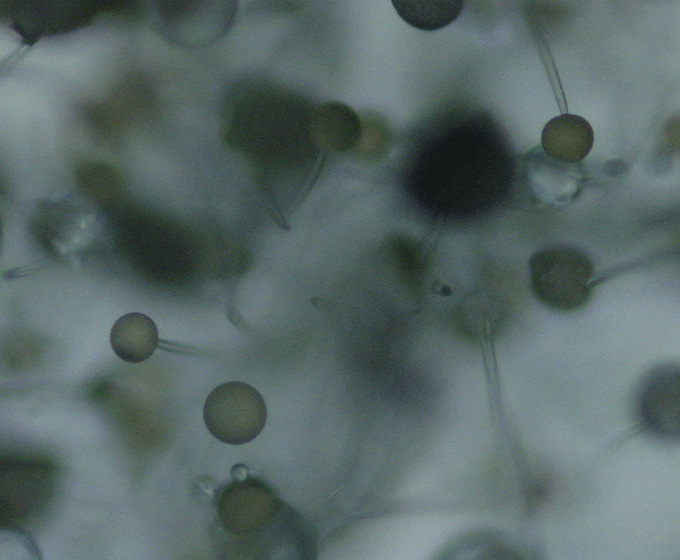
JUNE 2, 2021 — An outbreak of mucormycosis, also known as the black fungus, continues to spread at an alarming rate in India, especially among post-COVID-19 patients. It’s an aggressive infection. Thousands of cases are reported every day with a mortality rate of more than 50%.
As an exceptional faculty member solving the world’s grand challenges, Soo Chan Lee, assistant professor in the UTSA Department of Biology, is one of world’s leading experts of mucormycosis and a member of the South Texas Center for Emerging Infectious Diseases at UTSA. He says one factor for India’s black fungus tragedy is weakened immune systems. India is currently suffering from a COVID-19 surge and coronavirus patients are often given steroid treatments.
A side-effect risk from steroid treatments are weakened immune systems which allow mucormycosis to spread without the body’s natural resistance.
“Steroid treatments can help COVID-19 patients, but because it lowers immunity, it causes another problem. And that problem is mucormycosis,” Lee said. “The black fungus is rare because people with good immune systems can control it. But people with compromised immunity are really vulnerable for this infection.”
Lee says another major contributing factor to India’s black fungus outbreak is uncontrolled diabetes. According to The Hindu.com, there are approximately 77 million diabetics in India, the second highest amongst all nations.
“It's kind of a perfect storm. In India, there are many uncontrolled diabetic patients who also contracted COVID, and they are on steroid treatments. So, very unfortunate factors combined all together,” Lee said. “That's why we are seeing this historical outbreak of mucormycosis.”
 Mucor is a common black fungus species.
Mucor is a common black fungus species.Lee added that living with mucormycosis and other fungus spores is unavoidable. It’s a fact of life.
“Black fungus is one of the most common soil fungi. The spores are flying all around—they land on plants, the ground, anything,” Lee explained.
Our immune systems are usually able to combat and filter out fungi spores as they enter our bodies, but Lee said that anybody with a weakened immune system is susceptible to the harmful effects of fungi. Between the continued spread of COVID-19, steroid and cancer treatments that lower immune systems, and skyrocketing rates of uncontrolled diabetes, Lee is concerned the mucormycosis incident in India will not be the last.
“We now have more susceptible patient groups due to medical reasons. Hundreds of years ago, there were not this many diabetic patients in the world, so now we have more conditions out there,” Lee said. “This is why we need to develop better drugs to combat fungus infections.”
Researchers like Lee are finding that fungi are resistant to many types of antifungal drugs. In his UTSA lab, he is doing extensive research to learn why this happens. He believes gaining a greater understanding on how the fungus interacts with human immune cells to start infections, will be a big step toward understanding how to develop more effective antifungal drugs.
In addition to UTSA, Lee says Duke University and the Harbor-UCLA Medical Center are the only other institutions doing extensive mucormycosis research in the United States. With the potential for extensive fungus infection epidemics possible, he added that more research dollars are needed to develop effective antifungal drugs.
“The funding for understanding and developing antifungal medication is far behind what’s granted for virus and bacteria research, so I appreciate the support the Tomerlin-Voelcker Foundation has provided me,” Lee said. “People tended to really neglect this and didn't appreciate the consequences of mucormycosis. But perhaps the black fungus outbreak will change attitudes and make available more funding so we can save more lives.”
UTSA Today is produced by University Communications and Marketing, the official news source of The University of Texas at San Antonio. Send your feedback to news@utsa.edu. Keep up-to-date on UTSA news by visiting UTSA Today. Connect with UTSA online at Facebook, Twitter, Youtube and Instagram.
Move In To COLFA is strongly recommended for new students in COLFA. It gives you the chance to learn about the Student Success Center, campus resources and meet new friends!
Academic Classroom: Lecture Hall (MH 2.01.10,) McKinney Humanities BldgWe invite you to join us for Birds Up! Downtown, an exciting welcome back event designed to connect students with the different departments at the Downtown Campus. Students will have the opportunity to learn about some of the departments on campus, gain access to different resources, and collect some giveaways!
Bill Miller PlazaCome and celebrate this year's homecoming at the Downtown Campus with food, games, giveaways, music, and more. We look forward to seeing your Roadrunner Spirit!
Bill Miller PlazaThe University of Texas at San Antonio is dedicated to the advancement of knowledge through research and discovery, teaching and learning, community engagement and public service. As an institution of access and excellence, UTSA embraces multicultural traditions and serves as a center for intellectual and creative resources as well as a catalyst for socioeconomic development and the commercialization of intellectual property - for Texas, the nation and the world.
To be a premier public research university, providing access to educational excellence and preparing citizen leaders for the global environment.
We encourage an environment of dialogue and discovery, where integrity, excellence, respect, collaboration and innovation are fostered.